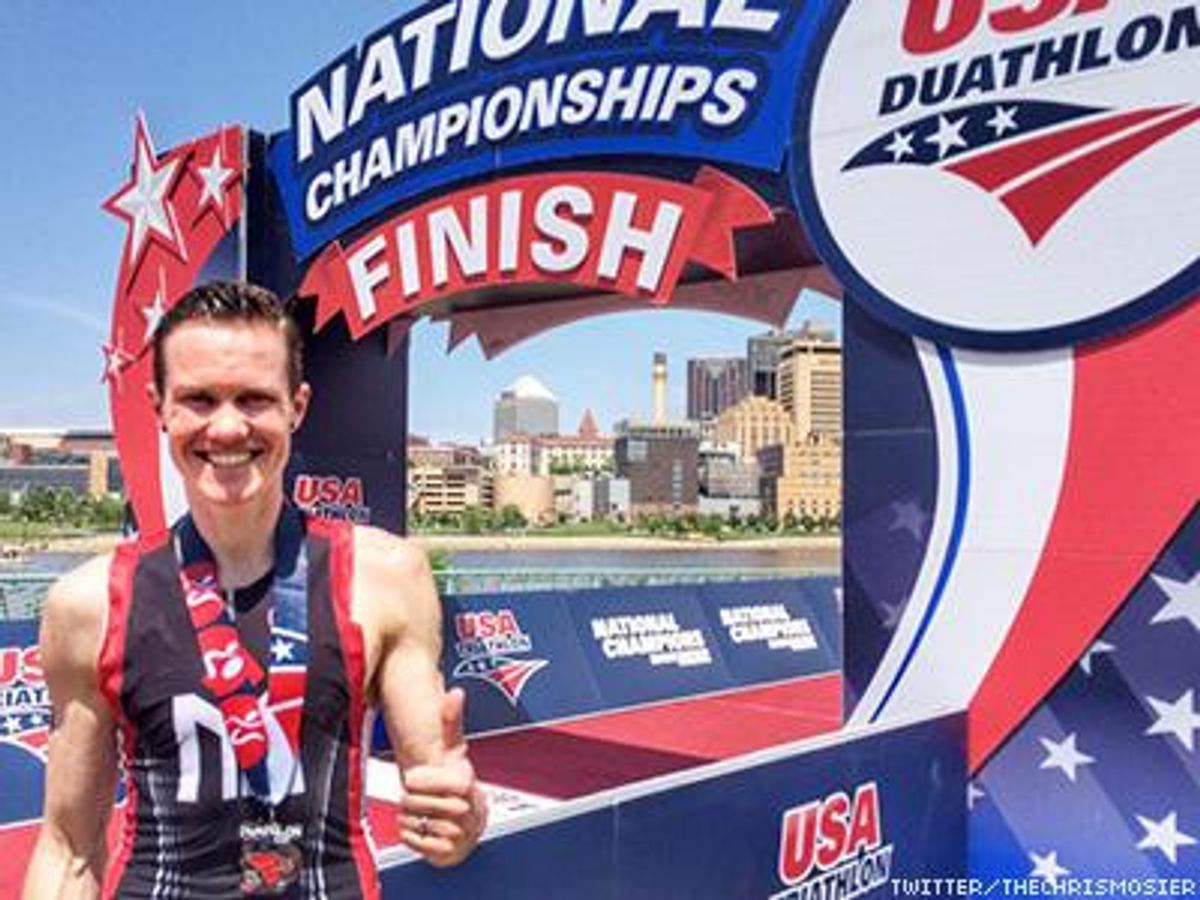Winning a spot on Team USA in the men's sprint duathlon Saturday, Chris Mosier has become the first known out trans athlete to join a U.S. national team that matches his gender identity, rather than the gender assigned him at birth.
Mosier, 34, earned his spot in LGBT sports history at this weekend's Duathlon National Championship, after finishing seventh out of eight spots in the men's 35-39 category, according to Outsports. He finished 37th overall out of 117 competitors, spending just over an hour on the endurance event that requires competitors to run, then bike, then run again.
Mosier will now represent the U.S. in the 2016 World Championship duathlon in Spain. When he's not running and biking and running, Mosier works as an advocate for trans athletes nationwide as the founder of TransAthlete.com and as executive director of the world's largest LGBT student athlete network, GO! Athletes.
The response to Mosier's win has been overwhelmingly positive, though it is still common for trans athletes, and most commonly trans women -- such as mixed martial artist Fallon Fox or CrossFitter Chloie Johnson -- to face scrutiny about whether their hormone levels should disqualify them from competing alongside others who share their gender identity.
The growing consensus among medical professionals is that after a certain time spent on clinical treatment, transgender athletes have hormonal levels largely similar to cisgender (nontrans) competitors, offering them no substantial "advantage" in their chosen sport.
Mosier, for one, undergoes regular medical tests reported to United States Anti-Doping Agency -- and now, with his duathlon win, to the World Anti-Doping Agency -- to ensure that his testosterone levels remain in the "normal" range for male athletes, notes Outsports.
The first trans man inducted into the National Gay and Lesbian Sports Hall of Fame, Mosier was also selected as one of The Advocate's 40 Under 40 "emerging voices" last year. He explained to the magazine that he competes, in part, to show other aspiring trans athletes that medical transition is not the end of their competitive days.
"When I was considering transition, I didn't see any trans men who were athletes," he told The Advocate. "I didn't know it was possible to continue to compete through transition, and I thought I would go from competitive to middle-of-the-pack in races. But the opposite has been true. I've gotten more and more competitive in the male age group, working toward the elite level. My hope is that athetes who are questioning their gender identity can see me and hear my story and know they don't have to give up their identity as an athlete to live authentically."
His competitive drive has clearly paid off, and Mosier has taken a short well-deserved break to celebrate with fans on social media. "Did it!" he cheered Saturday on his Facebook page. "I made Team USA! Life dream accomplished!"


















































































